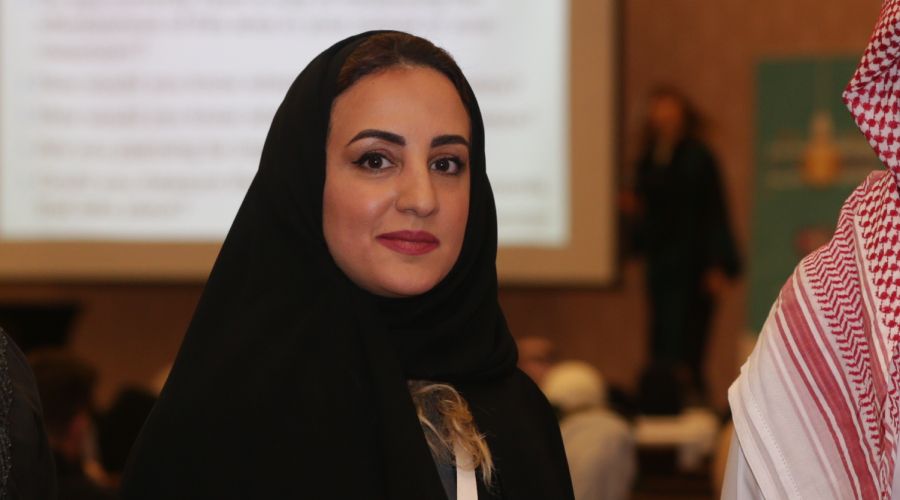In conversation with Mounira Jamjoom of Aanaab

Earlier this month, Saudi Arabia-based teacher training platform Aanaab secured a $1.5 million investment round led by Wamda and Nour Nouf Knowledge Company in addition to a group of angel investors.
Founded in 2016 by Mounira Jamjoom and Naila AlKhalawi, Aanaab is an online platform that facilitates ongoing professional and personal development of Arab teachers through distance learning solutions. Aaanaab provides teachers with the opportunity to acquire Cambridge international credentials, as part of its partnership with the prestigious school.
We spoke with co-founder and chief executive officer Jamjoom to learn more about Aanaab, the vision behind it and the growing potential of the education technology (edtech) sector and distance learning in the Middle East and North Africa (Mena) region in light of the novel COVID-19 outbreak.
Why did you launch Aanaab?
We are educators who become tech people. We had an advisory company that focused on education development and found a significant problem in the education sector in all countries across the Arab world, which is the inadequate capabilities of the Arab teacher compared to the expat teacher. As educators, we understand very well that the quality of an education system depends on the quality of its teachers. So, we were faced with a problem: how can we upskill our teachers through professional development in a fast and scalable way through providing them high quality education. This is how the concept of Aanaab came about.
Tell us more about the platform
Aanaab was initially founded as a peer-to-peer marketplace for teachers to exchange content; however, when we tested this concept, it did not work because teachers did not have the necessary skills to develop high quality content. This is why we had to pivot Aanaab into an e-learning platform where we really focused on upskilling the teacher through different offerings.
When we launched a technical teacher course, we had 17,000 enrolments –which was an indication of how teachers are willing to be self-learners if they find quality content.
What distinguishes you from your competitors?
Most of the existing edtech products are primarily concerned with developing curriculum or good quality content tailored to teachers, but there was very little content that was focused on training the teacher as a human being. This is where we saw the gap. Most of our competitors were working in developing the content side. We, at Aanaab, are working on changing their mindset and the way they look at education by providing them with international credentials from prestigious schools such as Cambridge while staying in the comfort of their home.
What were the initial challenges you faced?
Everyone in the Arab region is used to free content. So it was very challenging to build an e-learning solution and find a business model. Teachers were expecting all content [to be] free. That is why we moved to the pay-on-certificate model whereby we kept all our content free. The other challenge is that people do not believe in the impact of e-learning. Many Arab countries until today do not have regulatory policies that accredited e-learning programmes. This in addition to the negative perception on e-learning.
We are trying to mitigate this challenge by working very closely with regulatory bodies including the ministry of education and the technical and vocational training commission to get these online courses approved.
Was it easy to raise investment?
Although there are edtech products in the market, investors do not really believe in edtech products and their scalability. With the growth of the responsible capital, social impact investment and more [venture capital] VCs shifting their focus on more social impact initiatives, you will also see a lot of growth in edtech companies. That is what we have tried to do over the past year is to prove that edtech is scalable.
The most scalable education technological solutions are the ones that are operating using learning management systems (LMS) or e-learning models like Udacity. I think that e-learning is growing, because you see e-learning solutions growing in schools today with the advent of the COVID-19 outbreak.
What is next for Aanaab?
Our core focus is going to be on the Saudi and UAE market. We are not considering expansion now. But we are really thinking of mastering our solution offered to schools. I think we are doing very well in the B2C sector. What we are trying to master right now is our B2B solution, which centres around working closely with schools.
It is more difficult to have a school transition to online learning. So we are trying schools with a full solution where they can very quickly, professionally develop their teachers instead of onboarding a trainer - from a foreign country or remote areas - to the schools to provide training for teachers. It is a very expensive process, so we are trying to democratise professional development for teachers. This is going to be the focus of the next year.
In your opinion, where is the edtech sector headed in the Arab region?
There is no running away from education technology. The education sector is being transformed like there is no tomorrow. I see online learning becoming the norm, not the second option, especially with the growth of population coupled with the lack of infrastructure and high rates of migration from one country to another.
I think higher education will be disrupted before any other. Younger generations are not going to be as enthusiastic to go to university like their predecessors. I do see the value of a university degree becoming less and the focus will be shifted towards acquiring professional credentials online.


